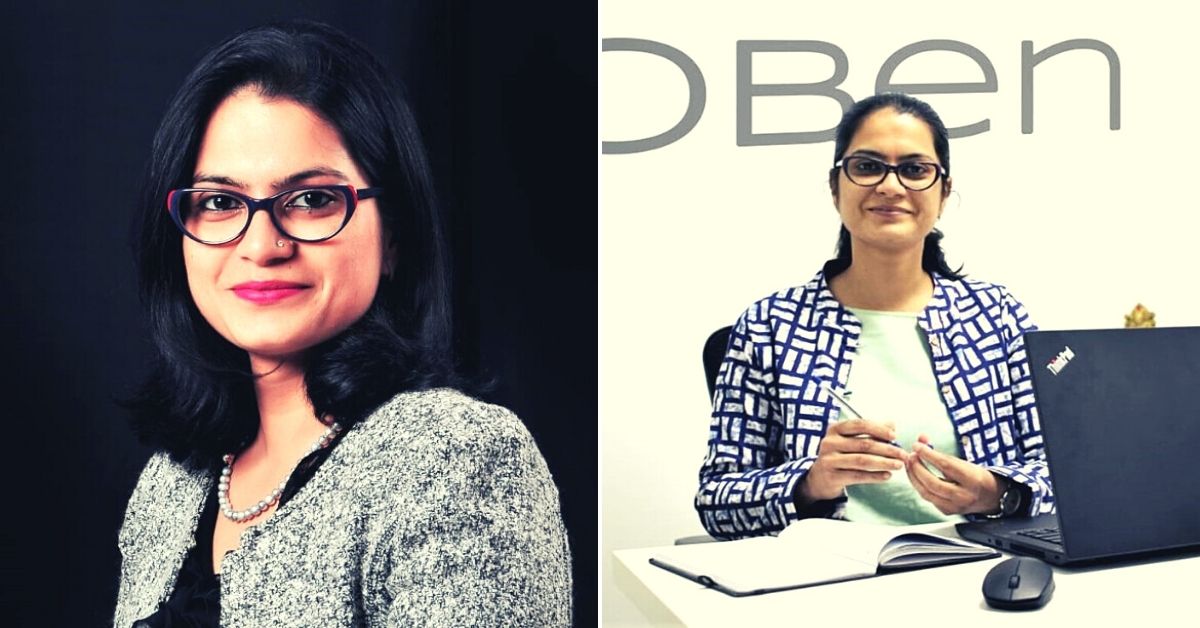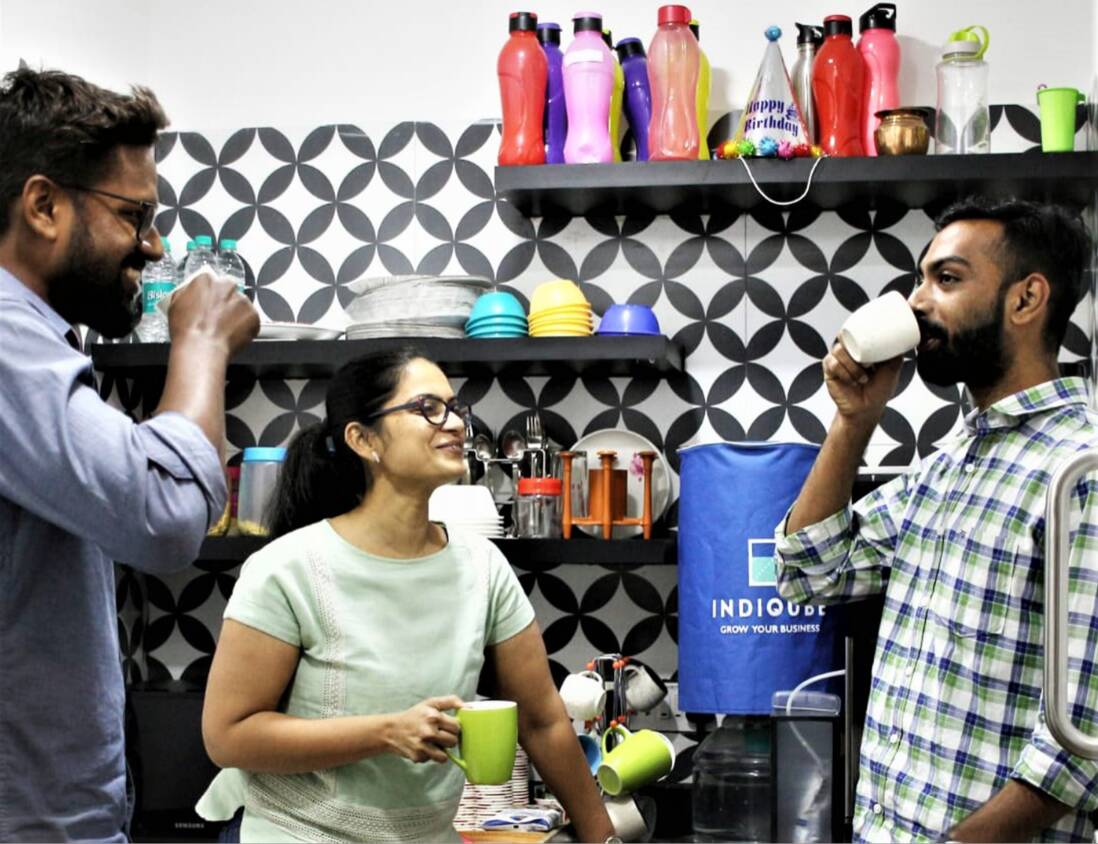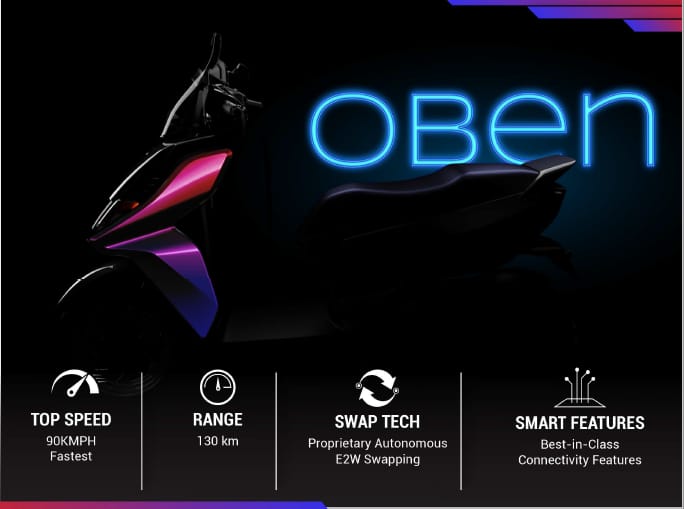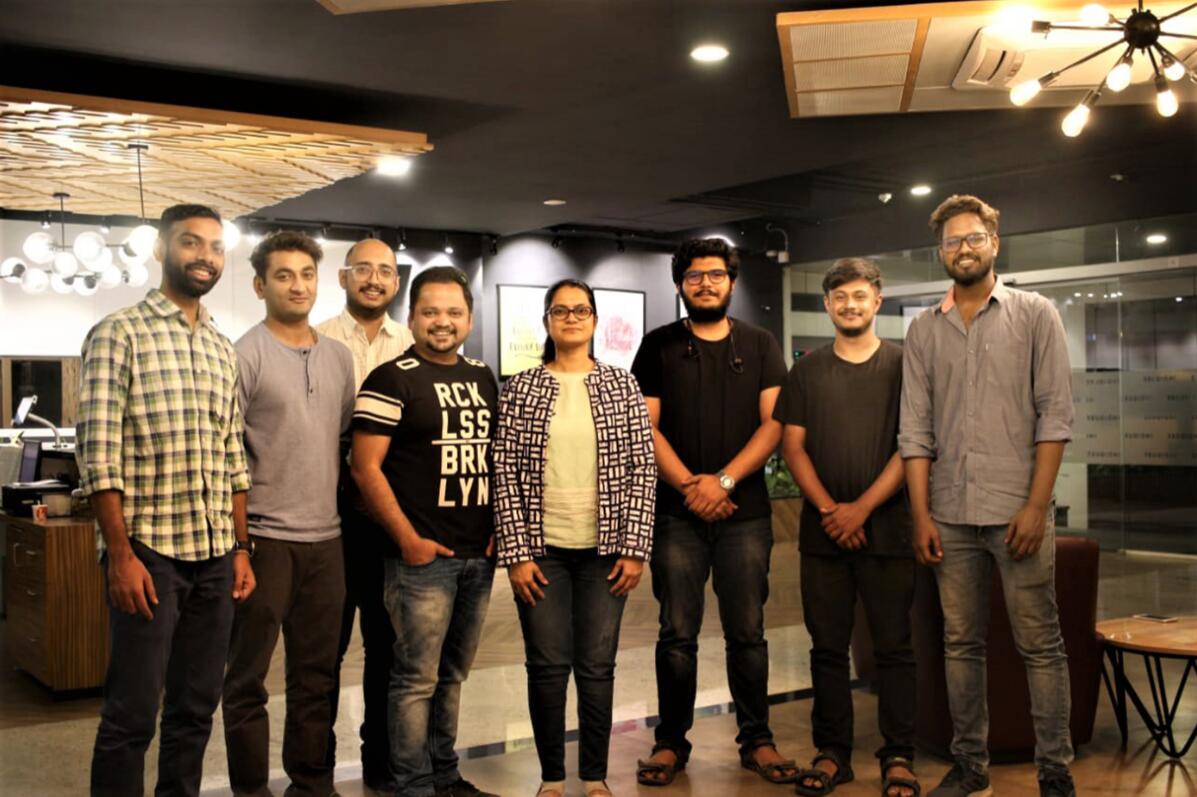After Creating A Multi-Million Dollar Company, Odisha Woman Breaks EV Glass Ceiling
After founding IPexcel, a multi-million dollar revenue generating technology and innovation consulting firm, Madhumita Agrawal cofounded an electric vehicle company, OBEN, with her husband, Dinkar.

What does it take for a woman from a conventional middle-class family in Rourkela, Odisha, to become a successful entrepreneur in the technology domain whose first venture ends up becoming a multi-million dollar revenue generating company? Ask Madhumita Agrawal, who after founding IPexcel, a technology and innovation consulting firm, also recently became the first woman to co-found an Indian electric vehicle company developing an inhouse vehicle, OBEN Electric Vehicle. Speaking to The Better India, Madhumita outlines a remarkable journey, which has taken her from Rourkela to IIT-Kharagpur, IIM-Bangalore and finally Bengaluru, the technology hub of India, where both the enterprises she founded conduct their operations today.
Building a multi-million dollar business
Born and raised in Rourkela, which is famous for producing steel, Madhumita attended school there before transitioning to an engineering degree in biotechnology from the Biju Patnaik University of Technology (BPUT). From there, however, she took a rather unconventional path. She pursued her law degree specialising in intellectual property at the Rajiv Gandhi School of Intellectual Property Law (RGSOIPL), IIT-Kharagpur.
Within the IIT system, which is known to churn out hundreds of engineers each year, it is the first of its kind law school to impart legal education with IP specialisation. There she underwent a three-year residential programme, which helped her earn a Bachelor of Laws (Hons) degree in Intellectual Property Law approved by the Bar Council of India.
“When you’re specialising in patents or intellectual property, you need to understand the different and finer nuances of technology. After completing my engineering, I never wanted to leave the field entirely, but I also wasn’t interested in studying for a PhD. That’s why I pursued this course at IIT-KGP. After graduating from the course there in 2012, I started my own firm called IPexcel, a technology and innovation consulting firm, which helps technology companies in developing innovations, improving existing technologies and protecting their intellectual property rights (IPRs). Our firm has also done a lot of scouting for big MNCs, helping them identify the right kind of technologies for them,” says Madhumita.
Starting with zero customers, the company today has more than 1,500 across different technology segments. They have five customers who find a mention in the list of Fortune 500 companies, besides a plethora of mid-sized firms and startups across 10 countries.
“My husband, Dinkar Agrawal, who is also an IIT-KGP alumnus holds five patents as an innovator, and has previously worked with General Electric. He helped me co-found our first venture IPexcel. Leveraging his knowledge of innovation and my understanding of IPR, we initially sold our services to mid-sized firms and startups who didn’t have their own in-house setup. From just my husband and I, today IPexcel has more than 70 team members in India and the United States. While running IPexcel, I also did my executive MBA from IIM-Bangalore (2016-17),” she adds.
IPexcel today is a multi-million dollar revenue generating company. How did that happen? Before starting this company, Madhumita did a lot of internships to identify areas where she would like to pursue her career. During the course at IIT-KGP, she realised that her strength lay in patents and intellectual property. As a technologist, she realised her value was best expressed as a patent attorney and that’s how she stood out against her peers.
“Finding that niche became a source of strength and confidence. That’s when I decided to pursue this as a full-fledged venture. Selling our services was initially very hard because we are talking about innovation in a country where ‘jugaad’ was still appreciated. It was a hard sell. We definitely had our share of hardships. When you have a definite product, it’s easier to convince customers. The product speaks for itself. When you have an IP service, the output could be intellectual property or a product that may hit the market only after a few months or years down the line. There is no immediate and tangible success or satisfaction that the customer can experience. However, the value addition we brought to customers helped us grow 200% (CAGR) every year. My husband and I were always determined to take our venture to new heights and not behave like a conventional firm,” she claims.
For most companies in the IPR domain to achieve such phenomenal growth and scale up the business in this manner often takes up to 10 to 20 years. After all, they are in the business of selling something intangible. It’s imperative for them to bring real value addition to customers in this domain, who are almost entirely tech companies building real products.
So, how did Madhumita and Dinkar manage these stupendous rates of growth?
“As founders we were aggressive and set very high standards for the company. To begin with, co-founders of such entities need to complement each other well. While I handled sales, marketing and getting customers, my husband took care of executing our services. We also recruited very strong teammates who complemented each other. But whom do you hire, invest in and train? That was a priority for us. We always hired people with a very strong technical background from either elite institutions or otherwise. You can always teach them management, how to analyse stuff, but you can’t teach them the basics,” she says.
In its early days, IPexcel hired people who were technically sound and highly passionate about their work. Initially, Madhumita does admit that it was a hard sell to prospective employees, but the first people they hired are now leaders there. That’s what allowed Madhumita and her husband to move out of IPexcel in 2020. They built the firm’s foundational systems and made them leaders. Finally, it was also about ensuring rigorous training for their employees and a diligent focus on service delivery, which ultimately brings in the money.
The best part of it all was that it was a bootstrapped entity, which eventually translated into a customer-backed and not venture-backed endeavour like any old-school business. Today, she is a promoter of the firm, not involved in the company’s day-to-day affairs as a Managing Director.

Transitioning to EVs
While running IPexcel, Madhumita and Dinkar began aggressively consulting firms in the electric mobility business. That is how they developed an expertise and a strong interest in electric vehicles (EVs), besides understanding their market and its existing problems.
“For the past four years, we have been closely working in this domain understanding the different products on offer, problems and gaps in the Indian market. But it was only early last year, when we held serious discussions as co-founders about identifying the gaps in the market, how to position ourselves and what we can do to achieve our goals moving forward. By August 2020, we had identified the gaps, set up the right team around us and officially incorporated OBEN Electric Vehicle in Bengaluru,” recalls Madhumita.
Before founding OBEN, they identified two major problems in the sector:
1) A lot of cheap and bad quality EV products are being pushed into India.
2) Consumer hassles about charging their EVs, which revolves around where they can charge their vehicles and for how long in a country with a poor charging infrastructure.
The startup is looking to address these concerns by developing a premium e-scooter and offering an autonomous battery swapping solution. There are a couple of players in the current EV market who are selling quality e-scooters in the B2C segment, but they haven’t addressed the other overarching concerns like charging hassles and customer service.
“Our e-scooter, which will have a pre-production model ready next month, has a top speed of 90 kmph and company claimed battery range of 130 km. We have installed all the necessary smart features. We have built a proprietary technology for autonomous battery swapping and the infrastructure to back it up. Every component is made and designed in India except for the battery cells. Initially, we will be manufacturing these e-scooters ourselves, but as volumes increase, we will be looking for other partners,” she claims.

Women succeeding in tech
Speaking to The Better India, her husband, Dinkar, says, “I really feel proud to be Madhumita’s husband. She is persistent, hardworking, and highly disciplined. This gives her the edge in her professional and personal life. I am still unable to understand how she manages both worlds with such success. She is growing tremendously in her career and I am and will always be there to support her in her endeavours.”
Despite her husband’s support, any woman venturing into technology has to put in the extra effort over their male counterparts.
As she says, “That’s the kind of male-dominated space we work in currently. Women have to go above and beyond what’s required to convince stakeholders. There are obviously many reasons why this happens, but as I have grown, I am seeing more women getting into spaces like technology manufacturing, product-making and coding. Women are now taking up these challenges in male-dominated spaces and living up to expectations. It will take some more time for them to really make their mark because there are so few of us.”
But Dinkar agrees that more women are needed in technology enterprises. “Madhumita brings an alternative perspective to every decision we make in our organisation. It is one of the major reasons why we have been successful. Women see things that we don’t and it’s imperative that more of them become part of technology driven ventures,” he says.

So, what’s Madhumita’s advice to young women looking to break through the glass ceiling in these spaces? “My advice to young women coming straight out of college is to be confident. How do you build confidence? You build it with oceans of knowledge, a stranglehold of your subject and deliver what’s required of your work. Once you deliver results for the first time, it subsequently becomes easier. Women have to raise the bar,” she says.
(Edited by Yoshita Rao)
Like this story? Or have something to share? Write to us: [email protected], or connect with us on Facebook and Twitter.
If you found our stories insightful, informative, or even just enjoyable, we invite you to consider making a voluntary payment to support the work we do at The Better India. Your contribution helps us continue producing quality content that educates, inspires, and drives positive change.
Choose one of the payment options below for your contribution-
By paying for the stories you value, you directly contribute to sustaining our efforts focused on making a difference in the world. Together, let’s ensure that impactful stories continue to be told and shared, enriching lives and communities alike.
Thank you for your support. Here are some frequently asked questions you might find helpful to know why you are contributing?


This story made me
-
97
-
121
-
89
-
167











